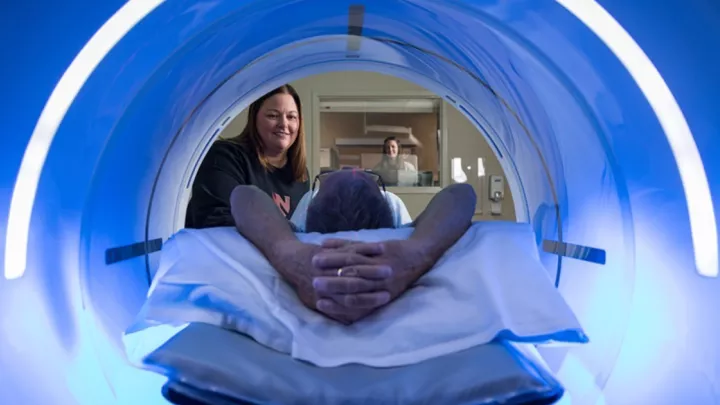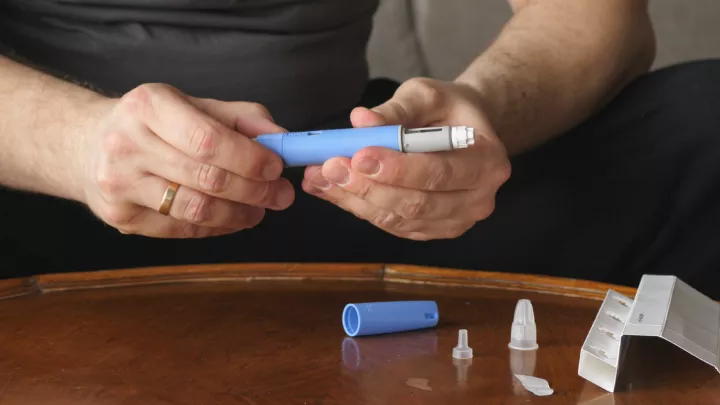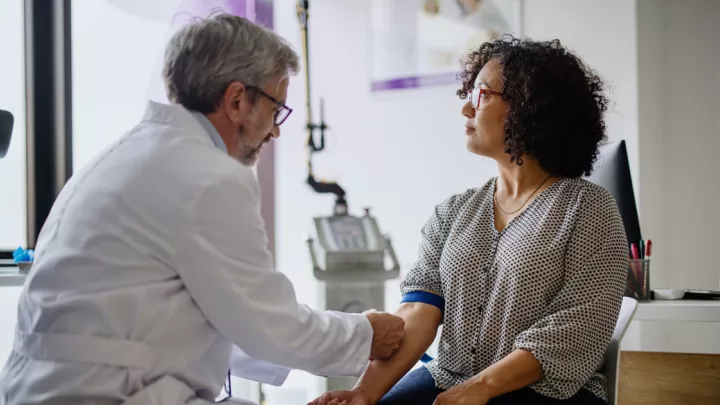What happens during lung cancer screenings, and who should get one?

Regular preventive screenings save lives. Their primary purpose? Catching disease in the earliest stages leads to more effective treatments, improved outcomes and better quality of life. Just as a mammogram, blood pressure check, or colonoscopy screening can be lifesaving, the same holds for annual lung cancer screenings for those who meet the criteria.
Lung cancer remains the leading cause of cancer-related death in the United States, and smoking is a key risk factor. If you meet the screening criteria, making an appointment may feel unsettling. Rest assured that screening is quick, safe and painless. If you are at higher risk, consider it a routine way to care for yourself.
What happens during and after a lung cancer screening?
A lung cancer screening involves a low-dose CT scan, which uses less radiation than a regular CT scan. The scan helps find abnormal lung areas before they start causing any symptoms. The scan itself takes only a few minutes, and there is no IV involved. You will lie down on a table, and the scan will use X-rays to get detailed images of your chest and lungs. That’s all there is to it.
Once you get your initial results, your provider will determine your follow-up care and how often future scans should occur (every 12 months or sooner). “You will receive a phone call the same day if anything looks concerning,” says Rachael Schmidt, DNP, FNP-C, program director for cancer risk and prevention. “Keep in mind that a growth on your lung doesn’t always mean cancer, as noncancerous lung nodules are common.”
Our multidisciplinary team of lung cancer screening specialists, including pulmonologists, radiologists and thoracic surgeons, can effectively detect lung disease in the safest way possible and will guide you through the process.
Who should get annual lung cancer screenings?
Unfortunately, lung cancer screening is still vastly underutilized. Nationally, less than 4.5% of those eligible take advantage of screening. In Nebraska, that number is less than 3.7%. When lung cancer is diagnosed in stage 1, the cure rate can be as high as 70% to 80%. Very early lung cancers usually do not cause symptoms. Annual screening helps find these cancers early, which can reduce the lung cancer death rate by up to 20%.
If you meet the following criteria, you are at a higher risk of developing lung cancer and should be screened:
- If you are between the ages of 50 and 80 and smoke or used to smoke.
- If you are a current or former smoker
- If you have a smoking history of 20 pack-years or more.
What is pack-years?
Pack-years is a way to measure smoking exposure that considers how long and how much you have smoked. It’s calculated by multiplying the number of years you have smoked by the number of packs you smoke daily. For example:
- One pack a day for the last 20 years = 20 pack-years.
- Two packs a day for the last 10 years = 20 pack-years.
“With all screenings, we want to measure the benefits versus the risk so patients can make an informed decision,” says Schmidt. “Right now, the biggest benefit of lung cancer screening is for those at higher risk who are asymptomatic (not experiencing symptoms).”
If you are experiencing lingering symptoms, talk with your primary care physician. Concerning symptoms may include shortness of breath, persistent cough and coughing up blood. If you have problematic symptoms, the scan will shift from a screening to a diagnostic test to determine precisely what is happening.
If you are a current smoker and would like support in quitting, we encourage you to participate in our Smoking Cessation Program.
The decision to get screened
There is much room to improve lung cancer screening rates, and the Nebraska Medicine Comprehensive Lung Cancer Screening Program is dedicated to making screening as easy as possible for at-risk patients. This program offers a multidisciplinary team of radiologists, pulmonologists, thoracic surgeons, medical oncologists, smoking cessation experts, researchers, primary care providers, and nurses who work to develop a best-practice, patient-centered plan.







